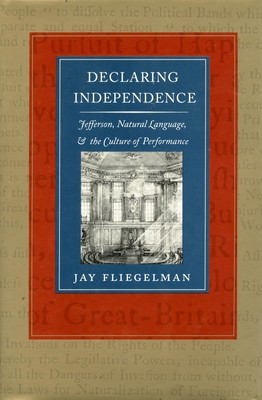
- We will send in 10–14 business days.
- Author: Jay Fliegelman
- Publisher: Stanford University Press
- ISBN-10: 0804720762
- ISBN-13: 9780804720762
- Format: 15.2 x 22.4 x 2 cm, softcover
- Language: English
- SAVE -10% with code: EXTRA
Reviews
Description
This book sets the Declaration of Independence and the American Revolution in general in the context of a revolution in rhetorical theory and practice that sought to discover a new language, a natural language equivalent to natural law that would permit, by its self-evidence, perfect understanding and the galvanising of public opinion. By demonstrating the intimate connections between the history of politics and the history of rhetoric and by tracing the larger issues of the Declaration to and through a wide array of cultural expressions - Declaring Independence offers, on the eve of the 250th anniversary of Jefferson's birth, the first full-length cultural contextualisation of America's founding document, as well as an interdisciplinary brief for reconsidering and enlarging the kinds of facts that are traditionally judged to be relevant to the understanding of a major historical document.
EXTRA 10 % discount with code: EXTRA
The promotion ends in 17d.12:49:02
The discount code is valid when purchasing from 10 €. Discounts do not stack.
- Author: Jay Fliegelman
- Publisher: Stanford University Press
- ISBN-10: 0804720762
- ISBN-13: 9780804720762
- Format: 15.2 x 22.4 x 2 cm, softcover
- Language: English English
This book sets the Declaration of Independence and the American Revolution in general in the context of a revolution in rhetorical theory and practice that sought to discover a new language, a natural language equivalent to natural law that would permit, by its self-evidence, perfect understanding and the galvanising of public opinion. By demonstrating the intimate connections between the history of politics and the history of rhetoric and by tracing the larger issues of the Declaration to and through a wide array of cultural expressions - Declaring Independence offers, on the eve of the 250th anniversary of Jefferson's birth, the first full-length cultural contextualisation of America's founding document, as well as an interdisciplinary brief for reconsidering and enlarging the kinds of facts that are traditionally judged to be relevant to the understanding of a major historical document.


Reviews